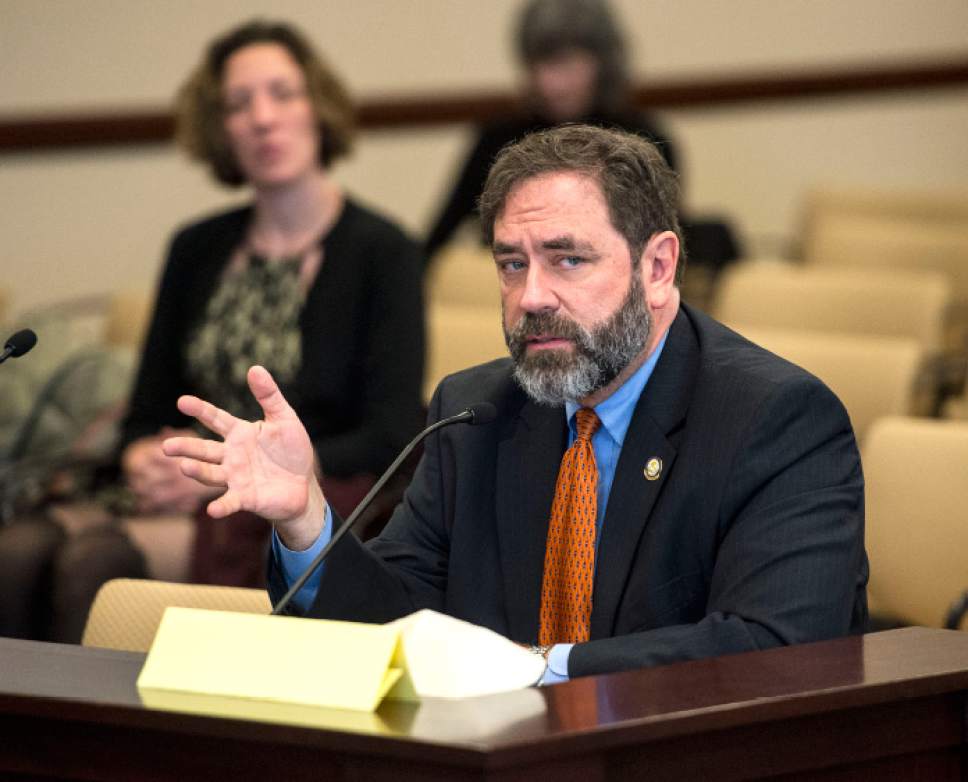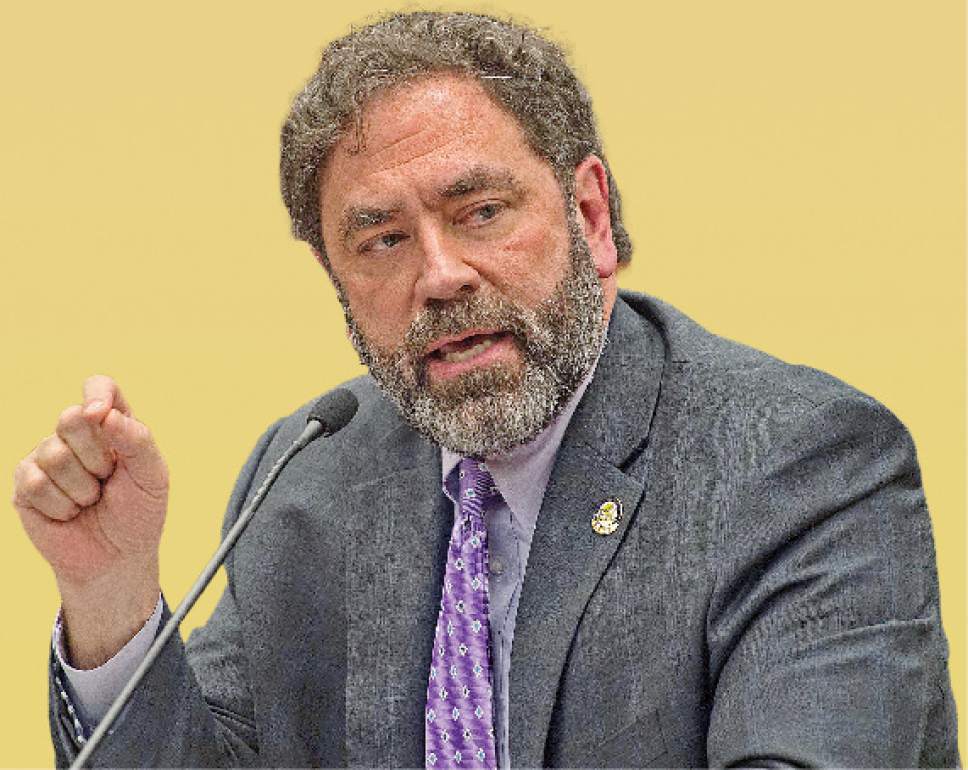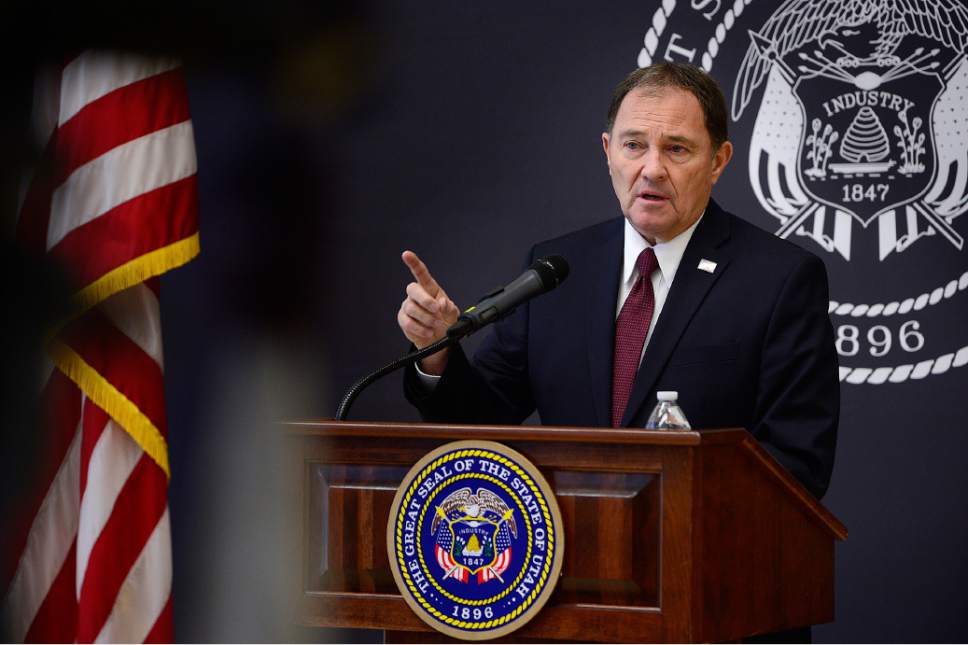This is an archived article that was published on sltrib.com in 2017, and information in the article may be outdated. It is provided only for personal research purposes and may not be reprinted.
Gov. Gary Herbert vetoed his first bill of the 2017 Legislature on Friday — a controversial one that would have removed the requirement to appoint at least some Democrats to dozens of state boards and commissions.
Ironically, Herbert's office had requested that bill initially. But when changes that he negotiated during consideration were ultimately rejected, he said he felt obligated to veto HB11.
"I am sometimes required by statute to consider partisanship in making those appointments" to boards, Herbert wrote in his veto message. "I feel that in most instances, this is contrary to the best interests of the public and public policy."
So he had asked for the bill, sponsored by Rep. Norm Thurston, R-Provo, "to allow for the appointment of the best and most qualified individuals outside of those partisanship considerations."
As Democrats protested loudly, the governor said he recognized "that some boards and commissions make decisions that may be viewed as partisan, and wanting to ensure that the public has confidence in their decisions, my office agreed to a negotiated version of this bill."
An amendment was added to still require some Democrats to be appointed to the Air Quality Board, Water Quality Board, Public Service Commission and the Alcoholic Beverage Control Commission. The House passed the amended version, and sent it to the Senate.
But all House Democrats still opposed it.
"It made a terrible bill just a crappy bill," House Minority Leader Brian King, D-Salt Lake City, said after the Legislature concluded.
The Senate then jettisoned the amendments to restore it to its original version — King said several Republicans told him that was done to send a message to Democrats essentially that "if you don't vote for the bad bill, we're going to pass the terrible bill."
Herbert said because that negotiated change was dropped, "I now feel obligated to veto this bill in its current form…. I believe that public confidence in these select boards and commissions may be increased through symbolic partisan makeup."
King said Friday he was surprised, but appreciative, of the governor's action.
"He did the right thing," King said. "And Democrats did the right thing by opposing it."
Final votes on the bill were 22-7 in the Senate — more than the two-thirds that would be needed for a veto override — but only 44-31 in the House, less than would be needed for an override in that chamber.
Herbert also signed 103 more bills on Friday, bringing the total signed so far to 415. Action is still pending on another 120. The governor has until Wednesday to sign the bills, veto them or allow them to become law without his signature.
Among the bills signed Friday include:
SB159 • Will require motorcyclists ages 18, 19 and 20 to wear helmets. The governor signed a bill Thursday that will allow the same age group to obtain permits to carry concealed weapons.
The age-based helmet law was sponsored by Sen. Brian Shiozawa, R-Cottonwood Heights, an emergency room doctor who says he has seen far too many traumatic head injuries from motorcycle crashes among young adults. He said the government often pays for their expensive care.
HB255 • Requires what sponsor Rep. Dan McCay, R-Riverton, says is more clear wording on ballot initiatives to help voters know how much proposals will cost.
The proposed Our Schools Now initiative to raise $750 million for education will have to spell out on the ballot that their plan would raise income taxes by 17.5 percent rather than say it would increase the current 5 percent tax rate by seven-eighths of 1 percent.
HB36 • Increases state income-tax credits and other financial incentives for landlords who provide low-income housing. It is seen as part of efforts to reduce homelessness.
HB252 • Will generally ban police departments from destroying firearms they have confiscated once they are no longer needed for trials — and requires selling them instead, with some proceeds going to a fallen officers support fund.
"I never saw the need for a perfectly good firearm to be destroyed," bill sponsor, Rep. Brad Daw, R-Orem, said during debate.







